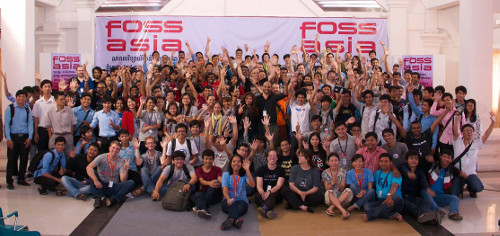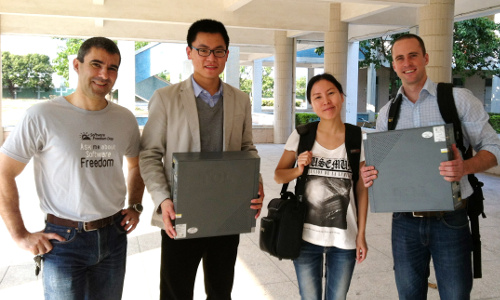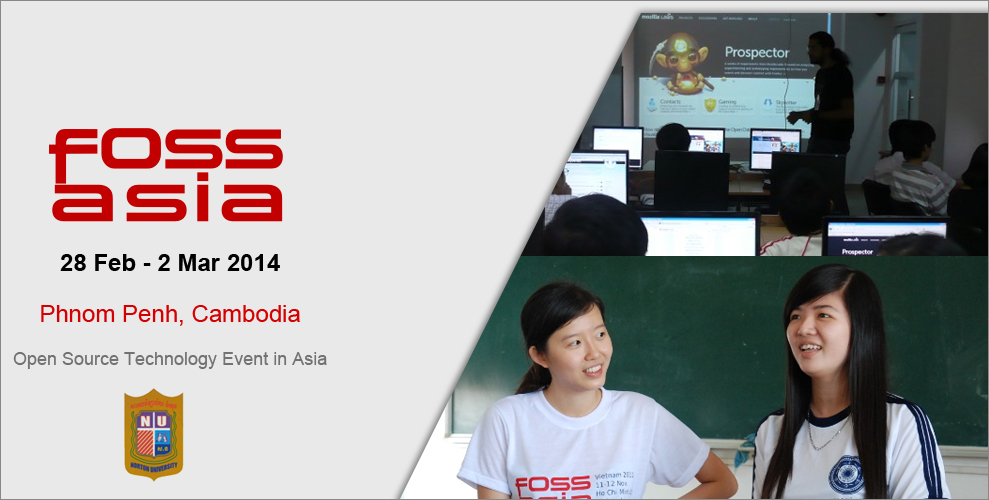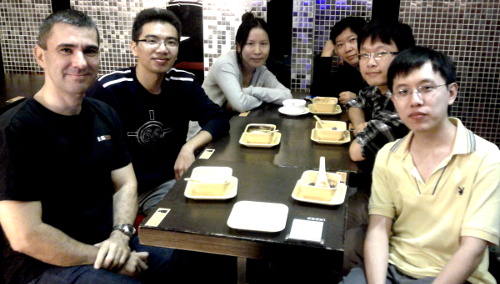 Over the past few months we have been busy introducing the Greenboard project in a few places, namely at Teach for China in Shantou and at FOSSASIA in Phnom Penh to name just two places. Both have been very interested in the concept, its flexibility, past deployments and more importantly using it within their environment.
Over the past few months we have been busy introducing the Greenboard project in a few places, namely at Teach for China in Shantou and at FOSSASIA in Phnom Penh to name just two places. Both have been very interested in the concept, its flexibility, past deployments and more importantly using it within their environment.
 We are now working on refurbishing a classroom of sixty computers in a school not too far from Shantou, classroom which was installed ten years ago and has never ever been used. Of course not all the machines start (in fact only 15 out of 60) but the room is properly set up and looks like a very nice place to start in the region. The people we are working with from Teach for China are very motivated as well which brings a lot to the equation.
We are now working on refurbishing a classroom of sixty computers in a school not too far from Shantou, classroom which was installed ten years ago and has never ever been used. Of course not all the machines start (in fact only 15 out of 60) but the room is properly set up and looks like a very nice place to start in the region. The people we are working with from Teach for China are very motivated as well which brings a lot to the equation.
 On the Cambodian side, the discussions we had with USAID and the representative from the Ministry of Education were very positive too. We will have further discussions during April and need to start checking the translation status of all the components we use. Luckily the person in charge of packaging Greenboard happens to be Cambodian too!
On the Cambodian side, the discussions we had with USAID and the representative from the Ministry of Education were very positive too. We will have further discussions during April and need to start checking the translation status of all the components we use. Luckily the person in charge of packaging Greenboard happens to be Cambodian too!
All in all we are pretty excited about what’s coming ahead of us and will work hard to make it happen. Stay connected to learn more as the projects move forward!


 We happened to be in Guangzhou earlier this week and spent a wonderful evening with the core members of the local
We happened to be in Guangzhou earlier this week and spent a wonderful evening with the core members of the local